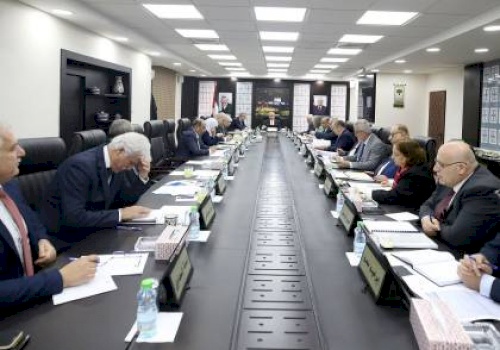The Minister’s Cabinet approved the National Industrial Policy Framework (NIPF)

The Minister’s Cabinet approved the National Industrial Policy Framework (NIPF) in its meeting held in Ramallah on September 25, 2023. Prepared by the Ministry of National Economy with support from the Tasdeer Program funded by the British Consulate in Jerusalem, the NIPF aims to develop the manufacturing sector in Palestine over a six-year horizon from 2024 to 2029.
According to the NIPF, the manufacturing sector is expected to grow by 2.5% in the Gross Domestic Product (GDP), rising from 11.2% to 13.7%. Additionally, the sector aims to create more than 79,000 new job opportunities, increasing the workforce from 139,000 to 218,000.
Investments estimated at $486 million are projected to expand the productive capacities of existing companies or to fund environmentally sustainable ventures over the next six years.
The NIPF is structured around seven pillars and includes 12 programs, each containing specific policy measures designed to address issues in areas such as supply and demand, infrastructure, capital, labor and skills, technology and innovation, and market access. These programs aim to enhance the overall competitiveness of industrial enterprises and focus on the development of priority sub-sectors.
The NIPF identifies three phases for the implementation of the industrial policy. In the short term, the main driver of growth in Manufacturing Value Added (MVA) and employment will be existing industries. Policy measures will focus on removing obstacles to the utilization of installed productive capacity and achieving small gains in labour productivity.
In the medium term, the focus will be on increasing industrial efficiency through investments in competitiveness factors such as technology and quality, as well as structured access to external markets.
Over the long term, the NIPF aims to establish the pillars of the industrial sector and advance its technological dimension, leading to an increase in activities with advanced technology in the total MVA.
The manufacturing sector is primarily composed of micro and very small enterprises, which constitute 92% of all manufacturing establishments, each employing fewer than nine workers.
The estimated cost for the implementation of the NIPF is around $180 million, half of which is allocated for infrastructure and financing costs.
The successful implementation of the NIPF relies on an effective and efficient governance structure that can offer guidance, ensure policy outcomes, and monitor program results.
